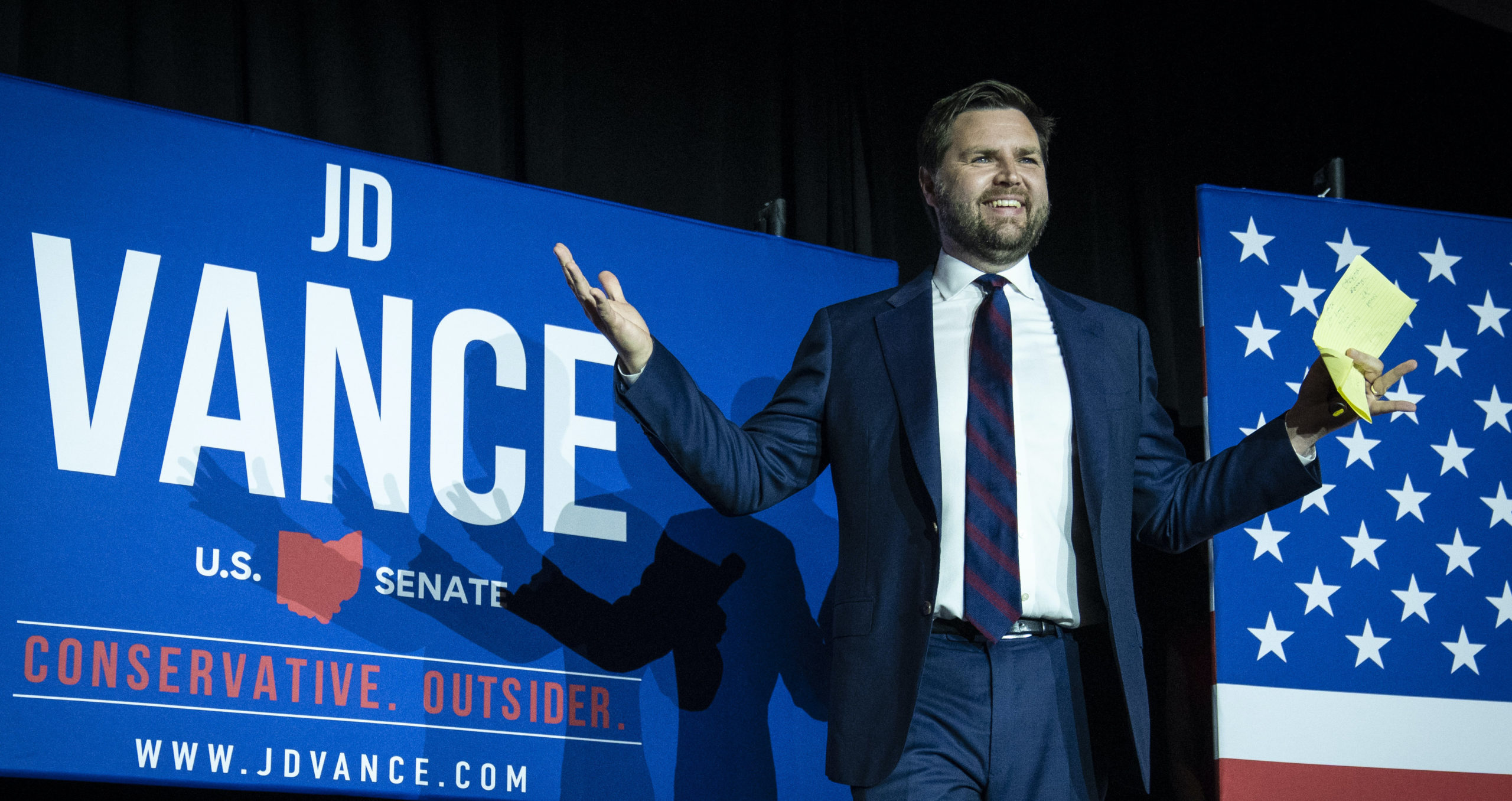Last night, J.D. Vance — the 37-year-old, Peter Thiel-backed, Trump- and Tucker Carlson-endorsed, New York Times-bestselling author of Hillbilly Elegy recently quoted by Vanity Fair calling for a “de-woke-ification” of the federal government — won Ohio’s crowded Republican Senate primary.
Vance’s victory is, among other things, a testament to the enduring power of Trump. A little over two weeks ago, Vance was stuck in third place, trailing his main rivals by double digits. But after receiving Trump’s endorsement on April 15 — despite having declared himself “Never-Trump” in 2016 — Vance shot into the lead. That Trump himself seemed confused over who he had endorsed — he touted the non-existent “JD Mandel” at a rally in Nebraska on Sunday — scarcely seemed to matter, especially given the strength of Vance’s support from Don, Jr..
The real Mandel, — not JD but Josh, a former Ohio treasurer and Tea Partier who reinvented himself as a firebreathing Trumpist — was crippled by late revelations that he’d been playing a double game, telling D.C. Republicans not to take his surrealist MAGA rhetoric too seriously even as he posted Twitter polls asking his followers whether “Muslim terrorists” or “Mexican gangbangers” would commit more crimes after crossing the border. Watching Mandel’s campaign, which often had the bizarre quality of a Sam Hyde comedy sketch, it was hard not to ask yourself, “He can’t possibly be this stupid, right?” He wasn’t, but he was too clever for his own good.
Trump’s endorsement put Vance over the edge, but Vance is far from a straightforward Trumpist. Despite his opportunistic flirtations with low-IQ, red-meat politics, Vance is ultimately an intellectual, with deep connections to the young, ambitious, DC Republican brain trust — so much so that this was considered a liability. The greatest knock on him throughout the campaign was that he was a sort of parachute candidate, an Ivy League egghead with wacky ideas about industrial policy and “the regime” that would sound bizarre to Ohio voters. Those critiques have been proven wrong. “I’m f***ing retarded. I can’t call a race,” one DC political reporter told me after the results came in.
If and when Vance wins his Senate seat — which seems inevitable in a state that twice went for Trump by 8% — it will represent the most tangible victory yet for the so-called “New Right”, the movement of young, edgy, and cerebral conservatives loosely orbiting Silicon Valley billionaire Peter Thiel. Thiel has donated some $13.5 million to Vance’s campaign and another $10 million to that of Blake Masters, a Senate candidate in Arizona.
Whether or not Vance can do anything once in government is a different question. A GOP strategist told me Vance will have few allies in the Senate, and joked that McConnell would assign him to the Committee on Aging — in other words, that Vance would be stuck with do-nothing assignments intended to box him out of real power. That may be, but few thought expected him to get this far in the first place. Vance is young, ambitious, and full of big ideas, with lots of plugged-in sympathizers. We’ll learn soon whether that’s enough to take on “the regime.”











Join the discussion
Join like minded readers that support our journalism by becoming a paid subscriber
To join the discussion in the comments, become a paid subscriber.
Join like minded readers that support our journalism, read unlimited articles and enjoy other subscriber-only benefits.
Subscribe